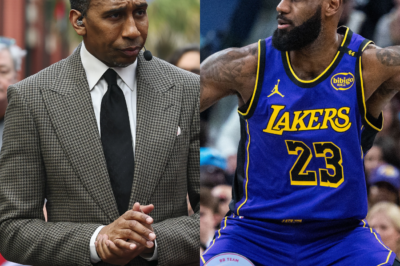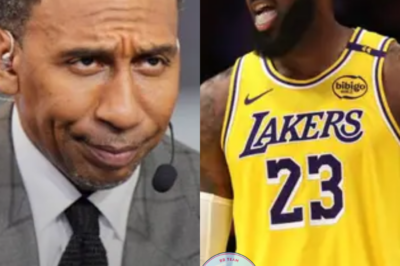The scene takes place in a quiet university lecture hall on a crisp autumn morning, the golden sunlight spilling through large windows and casting gentle rays over the desks and chairs arranged with perfect symmetry. The scent of books lingered in the air as students buzzed with anticipation, chatting about the lecture ahead. However, today’s class was unlike any other. Among the students was an unexpected figure—Michael Jordan, the legendary basketball icon, who entered the classroom with an unassuming demeanor, dressed in a simple gray hoodie and jeans. Gone was the glitz and glamour of the basketball court; here, Jordan was just another student.
His presence was immediately noticed. Students turned in disbelief, whispering in hushed tones. A young man sitting at the front leaned over to his friend, asking in awe, “Is that Michael Jordan?” The friend, though equally stunned, shrugged, assuming that the famous athlete was merely attending for fun. “What’s he doing here? Calculus isn’t exactly easy,” he said, unaware of the truth.
Jordan, despite his fame, was unfazed by the whispers and continued to focus intently on the textbook in front of him. Few knew that beyond his fame as an athlete, Jordan harbored a deep passion for mathematics. After retiring from basketball, he sought a new challenge and found solace in the strict logic and elegance of calculus. The problem-solving process intrigued him, much like perfecting his shots on the court.

However, not everyone in the class viewed Jordan’s presence favorably. The calculus professor, a staunch advocate of academic elitism, immediately noticed the disruption caused by Jordan’s entry into the classroom. With a reputation for strictness and a belief that knowledge was reserved for the intellectual elite, the professor viewed Jordan with skepticism. How could someone who spent his career on the basketball court be serious about mastering the complexities of mathematics?
As the lecture began, the professor kept a close eye on Jordan, studying his every move. Jordan, meanwhile, remained focused, diligently taking notes. The professor’s eyes betrayed an undercurrent of disdain—he didn’t trust that an athlete like Jordan could be genuinely interested in the subject, especially one so demanding. Jordan, however, had faced doubt his entire life. From a young age, he had been told he wasn’t good enough to make the basketball team, but he responded with tireless practice and an unyielding spirit. This time, the battle would be no different.
At the end of the lecture, as the students began to pack up, the professor called out Jordan’s name. “The student in the back,” he said, his voice carrying a subtle hint of mockery. “I think we should get to know each other, don’t you? You seem to be quite famous. You distracted me the entire class.” The room fell silent, and all eyes turned to Jordan.
Jordan, with his usual calm demeanor, stood up. “Yes, Professor. I’m Michael Jordan,” he replied respectfully.
The professor, unable to mask his sarcasm, nodded. “I’ve heard of you. A legendary athlete, right? But this is a calculus class, not a basketball court. Are you sure you’re in the right place?”
A few students laughed quietly, while others exchanged glances. But Jordan, unflinching, maintained his composure. He had learned to deal with skepticism throughout his life, and this was no different. “I’m sure, Professor. I genuinely want to study this subject,” he said.
The professor shrugged and turned away, clearly uninterested in continuing the conversation. But in that moment, a silent battle had begun. On one side was the professor, guarding the gates of academia with unwavering rigidity. On the other side stood Michael Jordan, whose passion for mathematics was as strong as his love for basketball. The world saw him as a legend on the court, but here, in this classroom, he was determined to prove that he could be just as exceptional in the world of numbers.
The next class took place in an air thick with unspoken tension. Jordan arrived early and quietly sat at the back, opening his textbook to review the material. Despite his best efforts to focus, he could still feel the professor’s penetrating gaze from across the room. The professor, who had watched Jordan with barely concealed disdain, was preparing to challenge him again.
Midway through the lecture, the professor wrote a complex differential equation on the board and turned to face the class, his eyes locking onto Jordan. “You, Michael Jordan,” he said, his voice carrying a challenge, “try solving this problem.”
The class fell silent. The students exchanged nervous glances, expecting Jordan to falter under the pressure. After all, this was a complex problem, and if Jordan failed, it would prove the professor’s point—athletes didn’t belong in the realm of academia. But Jordan was unfazed. He stood up and walked calmly to the board, picking up the chalk as if he were about to make a crucial shot in a championship game.
With a steady hand, Jordan began solving the equation, his chalk strokes firm and deliberate. One by one, the solutions appeared on the board. He didn’t just solve the problem; he showed his work, carefully annotating every step and explaining the reasoning behind each formula. As he finished, he stepped back, returning to his seat without a word.
The professor approached the board, his sharp eyes scanning the solution. There were no mistakes. Jordan had solved the problem with such clarity that it left no room for debate. The students were stunned. Some whispered in disbelief, while others clapped softly, but quickly stopped when they saw the professor remain unmoved.
The professor, now visibly perplexed, nodded slightly. “Acceptable,” he muttered. “But mathematics isn’t just about solving problems. Do you truly understand its essence, or are you merely following memorized formulas?”
Jordan did not argue. He simply smiled, knowing that his actions had spoken louder than words. To him, every problem was a challenge, and every challenge was an opportunity to prove himself, not for the professor, but for his own personal growth.
Later that afternoon, as the sunlight faded and the library grew quiet, Jordan remained in the stacks, surrounded by textbooks on calculus and number theory. He worked tirelessly, immersed in the world of mathematics as if he were preparing for the next big game. The students who passed by were surprised to see the basketball legend more focused on solving equations than practicing basketball shots. But Jordan didn’t care. He had always been judged based on appearances and stereotypes, but he knew that true greatness came from within.
Meanwhile, the professor sat in his office, reflecting on what had transpired. He couldn’t shake the image of Jordan’s flawless solution. Deep down, he realized that Jordan was not just a basketball player, but a true intellectual. His curiosity was piqued, and for the first time in years, the professor felt a sense of competition and admiration.
The next day, the professor presented an even more challenging problem, a chaotic system of equations that seemed nearly impossible to solve in one class. He turned to Jordan, his voice carrying a challenge. “Try solving this, Jordan. This is a problem that even final-year students might struggle with.”
Jordan didn’t hesitate. He stood up and approached the board, the weight of the challenge not phasing him in the least. As he worked through the problem, he encountered setbacks, but he did not falter. He wiped the board clean, started over, and kept pushing forward. It was the same determination he had shown on the basketball court—never giving up, no matter the difficulty.
As the class period came to a close, Jordan completed the problem. He stepped back, sweat on his brow but a sense of satisfaction in his eyes. The class was stunned into silence. When the professor examined the solution, he was forced to admit that there was no mistake. Jordan had done it again.
The professor, no longer carrying the same sharp tone, sighed deeply. “I don’t understand. Where did you learn all of this?” he asked.

Jordan smiled slightly. “I learned from life, from my failures, and from always getting back up. Math is just like basketball, Professor. If we don’t experiment, if we don’t accept mistakes, we’ll never improve.”
The professor, who had once viewed Jordan with disdain, now saw him with newfound respect. He had thought Jordan was just an athlete dabbling in academia, but now he understood that Jordan’s true strength lay not just in his intellect, but in his unyielding will to overcome any challenge. For the first time, the professor acknowledged Jordan as more than just a famous athlete. He was a force to be reckoned with in every field, and the professor’s eyes now held the respect that he had denied Jordan before.
This lesson wasn’t just about mathematics. It was about perseverance, resilience, and the power of the human spirit to triumph over doubt and adversity. Michael Jordan had proven that his greatness wasn’t limited to the basketball court, and in doing so, he had earned not only the professor’s respect but also the admiration of his peers.
News
Stephen Curry scores 52 points, hits 12 3-pointers in Warriors’ 134-125 win over Grizzlies.
Curry became the 3rd player in NBA history with at least 50 points, 10 rebounds, five assists and five steals…
Stephen A. Smith says he would have ‘immediately’ taken swing at LeBron James had Lakers star touched him in confrontation.
The ongoing Stephen A. Smith-LeBron James feud has escalated. A very public back and forth between the ESPN pundit and…
Stephen A Smith, Lebron James feud takes turn no one expected.
(Kirby Lee, Gary A. Vasquez-Imagn Images) When two individuals at the top of their selected professions have a public disagreement,…
Stephen Curry Meets a Young Boy Who Can’t Afford Basketball Shoes What Happens Next is Life-Changing
The Power of Dreams: Jamal and Steph’s Unlikely Connection In the heart of East Oakland, amidst the cracked concrete courts…
Michael Jordan Gives Stranded Woman a Ride, 3 Years Later She Finds Out Who He Really Is
In a pouring rain in Chicago, Sarah Thompson was driving her old Honda on a deserted road, trying to get…
Michael Jordan Bought His Mom Her Dream House – Her Reaction Left Everyone in Tears!
When Michael Jordan was just eight years old, he promised his mother one cold evening as the family sat around…
End of content
No more pages to load












